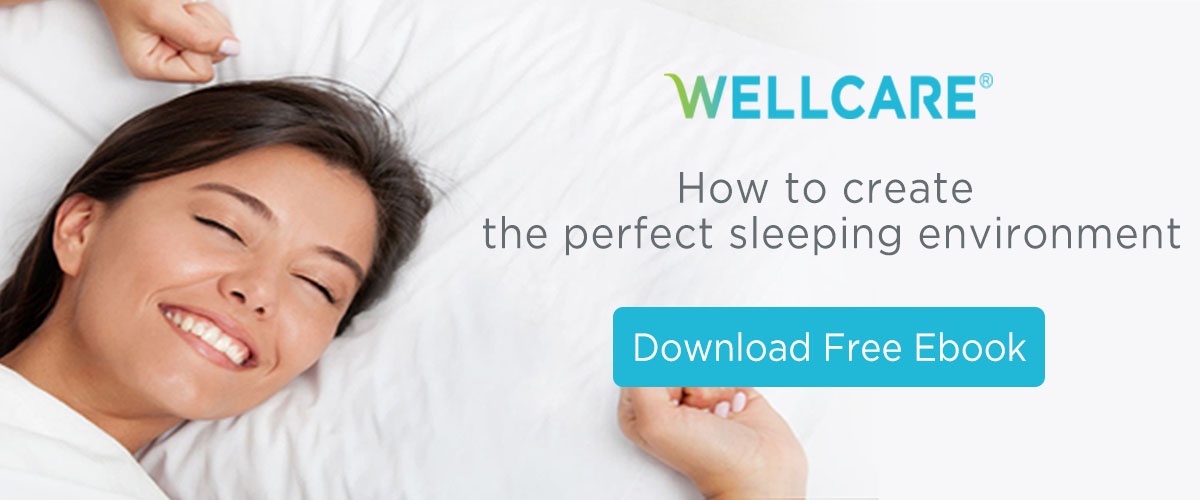
The Coronavirus (COVID-19) is spreading across the globe. This virus has not only affected people psychologically but also changed people’s daily routines dramatically.
As the number of confirmed cases rose, panicked consumers rushed to buy masks, pushing multiple online shops to increase the price of masks by nearly 80 times. You could see people in any major city, rushing to hoard essentials in supermarkets, hypermarkets and anywhere else that still had stocks.
People's anxiety index for coronavirus continues to rise. Everyone's level of happiness in life appears to be decreasing, as they think:
“What do I do if I can’t find masks?”
“I'm afraid that my family and I might become infected.”
“Will I be the next case?”
It’s understandable for so many people to be feeling anxious. After all, this pandemic can affect our family’s health and safety, and so little is known about it. The fear and anxiety increases stress levels, making people feel depressed, affecting their sleep quality, and ultimately reducing their immunity.
If you are feeling anxious, we’ve listed below nine relaxation methods to help you reduce stress, divert your attention, calm your worries, and maintain your immune system at a healthy level.
- Aromatherapy
Pleasant aromas are proven to help you relax, especially after a busy day. Imagine the scent of nature waiting for you, so you can experience relaxation and healing in the comfort of your own home.
Essential oils are the best aromatherapy. These oils fill your home with a natural scent to help calm your mood and relieve stress, and they can be applied nearly anywhere. Add a few drops of essential oils to the water when you bathe or leave your oil diffuser on while you read your favorite novel.
Another way to relax with aromatherapy is to sit or lay on your yoga mat, clear your mind, smell the fragrance, and feel the rhythm of your breath. Let things slow down and purify your mind.
There are many types of essential oils, so you can choose the smell that appeals to you. We recommend these five essential oils to help you improve sleep, mood, and health.
- Lavender - One of the most popular oils due to its ability to reduce anxiety.
- Jasmine - Found to have the same calming effect as jasmine tea, which is typically consumed by people before they get to bed.
- Bergamot - Unlike most citrus-based oils that have a stimulating effect, bergamot has a bright scent that is best suited for relaxation.
- Roman chamomile - This oil is known for its soothing properties, best for creating a peaceful sleeping environment.
- Clary sage - Extracted from the herb clary sage, this type of oil is known for its anti-depressant qualities.
- Breathing Exercises
Everyone breathes every day, but are you breathing the right way? Deep breathing is a simple and effective relaxation technique. Slow and deep breaths allow oxygen to flow properly throughout your body while doing wonders for your mind.
A U.S. study found that breathing exercises can be used as primary and supplementary treatments for stress, anxiety, depression, and other emotional disorders.
To practice, breathe in through your nose, and imagine your lungs filling up with air like a balloon. Next, breathe out with your mouth and feel the tension leaving your body. Then try again.
Take repeated deep breaths, slowing down your pace and naturally relieving your stress. This method is called diaphragmatic breathing, also known as "abdominal breathing" or "belly breathing." Focusing on abdominal breathing aids in diverting bad moods, relieving anxiety and reducing restlessness.
When you feel like stressing over the current situation, take some time to just sit down, clear your mind and practice breathing. By paying attention to your body, relaxing your muscles and feeling your breath, you can slowly experience inner peace and harmony.
- Physical Exercises
Exercise is a natural and effective way to alleviate anxiety and related disorders. Exercising regularly stimulates the brain to produce “ feel-good hormones” called endorphins, which relieve tension and stress, enhance both physical and mental energy, and help you achieve peace and happiness.
A recent study done by the Harvard T.H. Chan School of Public Health found that jogging for 15 minutes a day or walking for an hour reduces the risk of depression.
If you’re not able to go to the gym or outdoors due to the pandemic, exercising at home is still an excellent choice. Practice basic yoga stretches to relax your body, improve your mood and even help you get a good night’s sleep.
You can also use fitness tools, such as dumbbells and rollers, to build yourself a home gym. This way, you can exercise safely and securely while helping your body fight against the disease.
- Take a bath
Many people like to soak in hot water after returning home for work. There’s a good reason for this: you feel relaxed, comfortable and warm the minute your body touches the water. The action improves blood circulation, strengthens your white blood cells, loosens tight muscles, improves your immune system and helps you recover energy.
A Japanese scientist, Dr. Yumi Ishihara, recommends that your bath temperature should be around 37-38°C (or 40°C in winter). Enjoying a "half-body bath " for half an hour will warm your body from inside to outside.
If you soak in a bathtub during wintertime or any cold environment, you can hang a dry towel on your shoulders to prevent coldness in your upper body. If you spend a lot of time in the bathtub, stay relaxed by listening to music or reading a calming novel.
For business owners or anyone with limited free time, you can achieve the same goal more easily with a foot bath. Soak your feet in a bowl or bucket of warm water for 15 minutes. This improves blood circulation in your feet and warms your whole body until you feel relaxed.
- Sleep well
Sleeping is the most natural way to keep you healthy, which is why we spend one-third of our life doing it. found that a good night’s sleep can help our brain process information better, maintain good memory, and even reduce fear.
Chronic lack of sleep, however, increases the risk of mood disorder. surveyed adults over 18 in the UK and found that test subjects who struggled with sleep on most nights, had a three-fold increase in their risk of depression.
Sleeping well at night is like a reset button for the brain, leading to positive thoughts and preparing us for challenges. Getting enough sleep every day increases our body's immunity and resistance. Even one night of light or insufficient sleep, or sleeping less than four hours, can reduce the body’s immunity by as much as 70%.
We all need good rests, designing a comfortable sleep environment is an excellent way to help you sleep better at night. We wrote an e-book on “How to create the perfect sleep environment” and it is now available for free download. Follow the instructions on the e-book and create the best sleep environment!
So as the whole world worries about coronavirus, you can maintain your good health with a balanced diet, a regular daily schedule, and proper sleep every night. Read this article to learn more about improving your sleep.
- Be cautious with information
Accuracy of information is more important than the volume of information. It is best to focus on the information provided by the government or their partner agencies, to ensure that they’re credible, verified and accurate. Well-meaning relatives and friends might reshare incorrect or fake news, and these encourage panic. Avoid reading these if you can.
When you get home every day, allocate only half an hour to one hour of your time to catching up on verified news or information. The rest of your time, concentrate on other parts of life.
- Be prepared
Do more activities that build good hygiene, a healthy body, and a calm mind. Avoid going to public places such as cinemas, karaoke, and bars too often. If you want to go to public places, wear a mask!
You might not be accustomed to wearing masks, or you might think that they’re only for the severely ill. However, wearing a mask helps prevent you from being infected by respiratory droplets. When you protect yourself from infection, you also protect those around you. There’s also no need to panic and overstock your supplies. Only buy masks, alcohol and other disinfectant materials when you need them.
Lastly, stay informed about the disease and its symptoms. When you understand it, you can make arrangements for yourself and your loved ones just in case. Hope for the best and prepare for the worst. By having a backup plan, you will start to feel calmer and find a sense of stability.
- Distract yourself with a hobby or interest
Is there something you’ve been wanting to do but were simply too busy to start? Now’s the best time.
If you’ve always wanted to learn cooking, for example, look for healthy recipes on the internet. Perhaps you have a novel to read or a TV series you haven’t finished watching? These activities will help you relax and keep your mind away from anxiety.
You can also learn new skills by taking online courses. Learning anything can be a great way to enrich your life.
- Maintain relationships
It’s natural to feel nervous and anxious about the coronavirus. You might avoid going out and meeting people, out of fear and worry.
You can still spend quality time with your loved ones through your smartphone or computer webcam. With technology, you can express your care, share our emotions and maintain your bond. While you might not be able to visit friends and family right now, your relationship with each other need not change.
Staying positive and understand that it shall pass
During this time of the pandemic, we need strength and resilience more than ever. It’s important to keep yourself in a good physical and mental state. Be patient and hard times will pass.
The more prepared you are, the less anxious you will feel. Remember to take good care of yourself. Make it a priority. Only by doing this will you be able to take care of your loved ones, adjust yourself to the situation, maintain a daily schedule and welcome every day with a positive attitude.


.png?width=512&name=united-kingdom%20(1).png)


